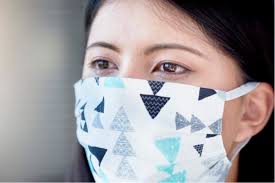The Centers for Disease Control and Prevention (CDC) have recently updated their guidelines on the use of face masks during the coronavirus disease 19 (COVID-19) pandemic. The updated guidelines recommend wearing a cloth covering or a mask when it is difficult to maintain physical distancing, such as when shopping. But research into whether reusable cloth masks can slow the spread of the new coronavirus has resulted in contradictory findings. In their study, the team experimented with various samples of cotton, chiffon, flannel, silk, spandex, satin, and polyester on their own and in combination. he researchers found that a sheet of tightly woven cotton of 600 threads per inch plus two sheets of chiffon, made from polyester and spandex, seemed to make the most effective combination, filtering out 80–99% of the particles, depending on their size. Other combinations that perform well, according to the researchers, are tightly woven cotton plus natural silk or flannel, and cotton quilt with cotton-polyester batting. The researchers explain that combinations involving a fabric with a tight weave, such as cotton, and one that can hold a static charge, such as silk, are likely effective because they provide a double barrier: mechanical and electrostatic. Yet they emphasize that for these masks to be truly effective, they have to fit very snugly.
(credits: www.medicalnewstoday.com)


